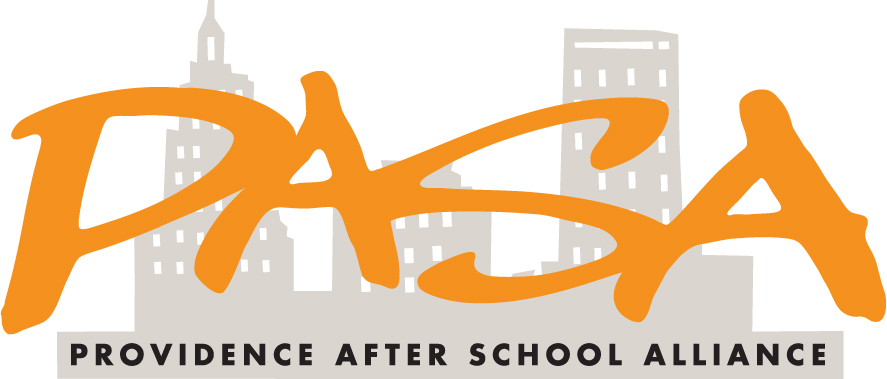
PASA's mission is to help close persistent opportunity gaps by expanding and improving quality after school, summer and other out of school time learning opportunities for all the youth of Providence by organizing a sustainable public-private partnership that contributes to student success and serves as a national model.
Today we expect more of our students and graduates than ever before. Not only are academic expectations rising, but employers say they want more emphasis on critical thinking, complex problem solving, written and oral communication, and applied knowledge in real-world settings.
With ever-increasing expectations, it’s not surprising that schools struggle to squeeze everything — academics as well as social and emotional skills — into a six-hour day. So where and when do students learn these skills?
Learning has to continue outside of school, with music lessons, sports, academic support, and other activities. Unfortunately, students from under-served communities, who typically have the greatest need for additional enrichment, are least likely to get it. They also are less likely to know about the world around them — that they live a mile from the ocean, can visit their city’s museums, and are welcome to walk through a nearby college campus.
Expanded-learning systems fill these critical gaps. Expanded learning teaches students about academics, collaboration, and problem solving. Students not only learn how to do better in school, they find new ways to ignite their passions — and to engage in learning and life.
Expanded learning also leads to measurable results. A decade of research and evaluation indicates that young people who participate in after-school programs benefit in terms of academic performance, social and emotional learning, prevention, and health and wellness.
Yet despite these benefits, more than 18 million young people in America lack access to high-quality after-school programs. In most cases, families’ income levels shape their options. Affluent families typically spend close to $8,900 per child each year on enrichment, compared to families in the lowest income quintile, who spend slightly more than $1,300 per child each year.
PASA’s Approach
Over time, the partnerships and practice that make up the AfterZone and the Hub have begun to integrate with the Providence Public School District to support a seamless day of year-round, in- and out-of-school learning that reengages young people in ways that excite them, stimulate their curiosity, and connect them to new experiences.
PASA’s approach to expanded learning is about making intentional connections between the community and schools, through academic content, but also through collaborative teaching practices and real-world, hands-on learning experiences.
It combines the hands-on youth development approach of the after-school field with the academic approach of the school day, resulting in dynamic, rigorous new learning opportunities for young people.
Hands-on learning is at the core of PASA’s expanded learning strategy.
This helps students to develop a sense of belonging, as well as a sense of ownership of their learning, by
providing a wide variety of learning options, ensuring that there’s something for every learning type and interest. Students choose their programs themselves from program brochures, allowing them to become empowered learners with a sense of personal agency.
The hands-on approach PASA’s programs use allows students to apply and investigate what they’ve learned for themselves, on their own or in a group. It also gives students the opportunity to strengthen their learning by building connections through mistakes.
Hands-on learning helps students see how what they’re learning fits into a greater understanding of the world, connecting content to other experiences or information.
For PASA, expanded learning is fun, relevant, deeper learning that happens anytime, anywhere.
